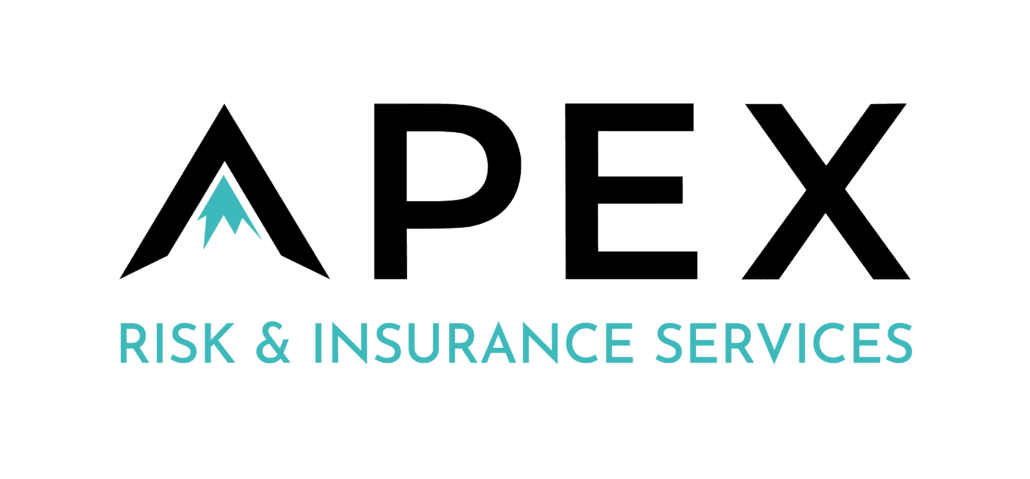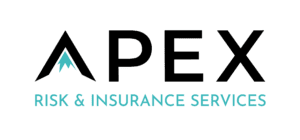Best Commercial Insurance Brokers in San Diego
Navigating California’s vibrant business landscape necessitates robust insurance coverage. In this realm, esteemed providers like Progressive, Allstate, Farmers Insurance, The Hartford, and Nationwide Mutual Insurance Company have long dominated. Yet, amid these industry giants, Apex emerges as a beacon for tailored, client-centric commercial insurance solutions.
Progressive
Celebrated for its adaptability, Progressive offers a versatile array of commercial insurance options. Its online platform simplifies obtaining quotes and tailoring policies, ensuring a seamless process without compromising on comprehensive coverage.
Allstate
A trusted source for business insurance, Allstate stands as a reliable option. Their user-friendly online quoting system ensures accessibility while offering comprehensive coverage options suited to various business needs.
Farmers Insurance
Renowned for its personalized approach, Farmers Insurance designs comprehensive coverage plans tailored to businesses of all sizes. Local agents provide hands-on guidance, ensuring clients find policies aligned with their specific requirements.
The Hartford
A stalwart in commercial insurance, The Hartford prioritizes business protection. Their user-friendly online quoting system reflects their commitment to safeguarding enterprises, both small and large.
Nationwide Mutual Insurance Company
Committed to comprehensive business protection, Nationwide extends its services with a focus on commercial insurance. Their emphasis on providing quotes underscores their dedication to client satisfaction.
Best Commercial Insurance for Small Business Owners: Apex Risk
Amidst these industry leaders, Apex strives not just to secure a place on the list but to redefine it. As a customer-focused entity, Apex specializes in catering to diverse business needs, prioritizing personalized attention, tailor-made solutions, and an unwavering commitment to safeguarding your business interests.
At Apex, we’re not merely a contender; we aim to be your foremost choice. Our emphasis on exceptional service and customized solutions sets us apart in the competitive realm of commercial insurance for California business owners.
How to Choose Insurance For Your Small Business
Navigating the vast landscape of small business insurance can be a labyrinthine task. The market is brimming with options, each offering a unique set of coverages, premiums, and services. As you embark on this journey, here are some invaluable insights to steer you toward the right small business insurance company for your unique needs:
1. Assess Your Business’s Needs:
Evaluate Industry Risks: Identify the specific risks pertinent to your industry. Ensure compliance with state, lending, or licensing requirements while safeguarding crucial assets and equipment vital for your operations.
Policy Availability: Check if the insurance provider offers policies tailored to your business’s needs in your state of operation.
2. Examine Financial Strength:
Assess Stability: A company’s financial robustness is critical. This ensures they can meet their financial commitments when the need arises. Review their financial strength ratings to gauge their stability.
3. Obtain Quotes:
Compare Offerings: Seek quotes from multiple insurers. Compare not just the coverage and limits but also the pricing. This comparative analysis is instrumental in making an informed decision.
Types of Insurance To Consider
When it comes to protecting your business, it’s crucial to understand the different types of insurance coverage available. While the specific types and amount of coverage you need will depend on the unique risks and needs of your business, here are some common types of insurance coverage to consider:
Liability insurance:
Liability insurance provides coverage for damages that your business may be held liable for, such as bodily injury or property damage caused by your products, services, or employees. This type of insurance can also cover legal fees and court costs if your business is sued.
Property insurance:
Property insurance provides coverage for damage to your business’s property, such as your building, equipment, inventory, and other assets. This type of insurance can also cover losses due to events like theft, fire, or natural disasters.
Workers’ compensation insurance:
Workers’ compensation insurance provides coverage for employees who are injured or become ill as a result of their job. This type of insurance can cover medical expenses, lost wages, and rehabilitation costs for employees who are injured on the job.
Business interruption insurance:
Business interruption insurance provides coverage for lost income and expenses if your business is forced to temporarily shut down due to a covered event, such as a fire or natural disaster.
Cyber liability insurance:
Cyber insurance, also called cyber security or cyber liability insurance, covers businesses against losses resulting from data breaches. This form of insurance primarily applies to businesses that run secure networks as part of their daily operations.
Read on to learn more about cyber insurance.
Professional liability insurance:
Professional liability insurance provides coverage for damages resulting from professional errors or negligence, such as mistakes made by doctors, lawyers, or other professionals.
FAQs on Small Business Insurance:
1. What exclusions are typical in business insurance policies?
Understanding the common exclusions in business insurance is crucial. These often include intentional acts of the insured, employee injuries covered by workers’ compensation, and specific natural disasters like floods or earthquakes. Have you reviewed your policy to grasp these exclusions?
2. Is insurance necessary for home-based businesses?
Do home-based businesses require insurance beyond what a homeowner’s policy might offer? What specific coverage, like liability or protection for business equipment, should home-based entrepreneurs consider to safeguard their ventures adequately?
3. How is coverage handled for remote workers?
What insurance coverage should employers extend to remote workers? Considering the varied nature of remote work and associated risks, what policies or provisions should businesses explore to ensure sufficient coverage for remote employees?
4. Do businesses without employees need insurance?
Even if a business doesn’t have employees, does it still require insurance coverage? How can sole proprietors protect their ventures from liability claims, property damage, or legal issues? What insurance options are available for businesses without employees?
5. What types of liability coverage are essential for small businesses?
Which specific liability coverages should small businesses prioritize to protect themselves against potential lawsuits, customer injuries, or property damage? Understanding the necessary liability coverage can significantly mitigate risks and ensure comprehensive protection.
Tips to Save on Small Business Insurance Premiums
1. Bundle Policies
Consider bundling multiple insurance policies, like general liability and property insurance, with the same provider. Insurers often offer discounts for bundling, reducing overall premiums.
2. Risk Mitigation Measures
Implement robust risk management strategies. This could include safety protocols, employee training programs, or security systems. Proactively reducing risks associated with your business operations can lead to lower premiums as insurers perceive reduced likelihood of claims.
3. Review and Update Policies Regularly
Businesses evolve, and so do their insurance needs. Periodically review your insurance policies to ensure they align with your current business structure and activities. This helps in avoiding overpaying for coverage you no longer require or ensuring you’re adequately covered for new ventures.
4. Shop Around and Compare Quotes
Don’t settle for the first quote you receive. Shop around and compare offerings from different insurance providers. Different companies might offer similar coverage at varying prices, allowing you to find the best value for your needs.
5. Consider Higher Deductibles
Opting for higher deductibles can lower your premiums. However, ensure you can comfortably afford the deductible amount in case of a claim. Balancing a higher deductible with manageable risk is key.
6. Utilize Risk Assessment Tools
Some insurers provide risk assessment tools or resources that can help businesses identify potential risks and take proactive measures. Engaging with these tools may demonstrate your commitment to risk management, potentially reducing premiums.
7. Seek Professional Advice
Consult with an insurance broker or agent experienced in small business insurance. They can offer insights, suggest appropriate coverage, and negotiate better rates on your behalf.
8. Maintain a Good Business Credit Score
A good business credit score can positively influence insurance premiums. Pay bills on time and manage finances prudently to maintain a favorable credit rating.
By implementing these strategies, businesses can potentially reduce insurance expenses without compromising on essential coverage. Remember, each business is unique, so assess these tips in alignment with your specific needs and risks.
Where Can I Find Commercial Insurance in San Diego?
Apex was founded to fill the service and consultative gap left by agency consolidations in the insurance marketplace. These consolidations have left customers who are used to a boutique service approach with no personal connection to their team.
Apex brings the high-touch service proposition back to San Diego businesses and beyond.
At Apex Risk & Insurance Services, we use the Apex Proven Process to learn about your business, strategize to assemble the right program for you, and use our deep industry and market knowledge to leverage the best pricing and coverage.
This leaves small business owners with more time to do what they do best: Run their business knowing that their company and employees are protected.
Check out our commercial insurance policies, then, read on to learn what makes us different.




